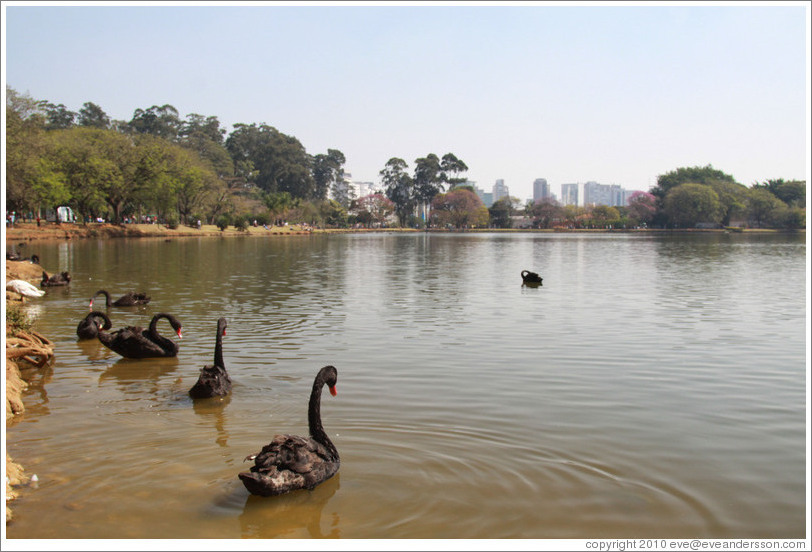

|
User Service Agreement and General Release
Intending to be fully bound hereby, I freely and openly do set my mouse to this clickbox in agreement. □____________ Reader. Entered this _ 1st_ day of ____April____, 20 __12__. |
1 April 2012
|
||
|
The surprising and enduring efficacy of non-violence Violence is the means, as all dictators have known, whereby the few dominate and exploit the many. Nonviolence is the means by which the many can reclaim their rights and advance their interests. Peace begins, someone has said, when the hungry are fed. It is equally true that the hungry will be fed when peace begins. Equality and nonviolence--peace and justice--are inextricably linked, and neither can flourish in the absence of the other. Peace, social justice and defense of the environment are a triad to pit against the imperial triad of war, economic exploitation and environmental exploitation. — from The Unconquerable World, by Jonathan Schell |
2 April 2012
|
||
|
The Elixir
Here was a man who seemed to me to excel all the authors
I had read in conveying the very quality |
3 April 2012
|
||
|
Dogma is often the corruption of someone else’s spiritual experience. Belief systems are often the enemy of the very spiritual truths they supposedly uphold. Most religious beliefs are not merely the foe of reason, of science. They are the enemy of God; not the man-made tyrant in the sky, but the very source of life, love, and truth. They are the enemy of spiritual understanding that would otherwise flow through us like the blood that circulates through our veins. Dogmatic presuppositions, drummed into our heads from infancy are like security blankets that shroud us in relative ignorance, and chain us to our beast-like tendencies. We are capable of much more. So much more. — Beau Porden (does anyone know who he is?) |
4 April 2012
|
||
|
Guarded optimism My premise is that the U.S. economy is going to collapse, that this process has already begun, and will run its course over a decade or more, with ups and downs here and there, but a consistent overall downward direction. I neither prognosticate nor wish for such an outcome; I just happen to see it as very likely. Furthermore, I do not see it as altogether bad. There are some terrible aspects to the current state of affairs, and some wonderful aspects to the post-collapse environment. For example, the air will be much cleaner, there will be no traffic jams, and people will have plenty of time to devote to their children and to people within their immediate community. Wildlife will rebound. Local culture will make a comeback. People will get plenty of exercise walking around, carrying things, and performing manual labor. They will eat smaller and healthier diets. I could go on and on... |
5 April 2012
|
||
|
Past Over I have a dream, so allow me to tell a vision. Each year at Passover, the Jewish people affirm the possibility of the Messiah: ‘Next year in Jerusalem.’ Next year always comes, and the Messiah never seems to come with it. Maybe it’s time to make a break with the past and actually act as if the Messiah is already here. You know, fake it till you make it. So put it on your calendars. Next year let’s celebrate Past Over in Jerusalem, and declare that the past is over and a new day has begun. Hold this vision with me please: Leaders of the Christian, Jewish and Muslim faiths together in celebration – doing the Hokey Pokey. They put their whole selves in ... that is commitment. They pull their whole selves out ... that is detachment. They turn themselves around ... that is transformation. And that’s what it’s all about! |
6 April 2012
|
||
|
Amends to Nature I have loved colours, and not flowers;
How is it, now, that I can see,
How is it that I see the roads,
I feel, in every midge that hums, — Arthur Symons |
7 April 2012
|
||
|
A better world is possible The lion’s share of the world’s bounty is being lost to violence, corruption, and outright theft. In a peaceful and honest world, there would be enough to go around. We could live in harmony with nature and have the comforts we need (though not the waste or the ostentation). For most of man’s history, people clamored over one another as a matter of survival. Later, the clamoring was for comfort and leisure. Now there is enough that we can all have luxuries. The clamoring that continues is about prestige and symbols of dominance; not to acquire more for the victor but to assure that there’s less for the loser. A hopeful tragedy.
The world’s great problems are traceable to a tiny proportion of the
population – well under 1% that are unable to feel empathy or remorse
(or love). Any semblance of democracy would be sufficient to assure a
peaceful and prosperous future for humanity. — Josh Mitteldorf |
8 April 2012
|
||
|
The yoga of sleep We need to remember that sleep, in addition to providing support to waking life, is of value in it of itself. Sleep delivers something important. It takes us to another place in consciousness. I deeply believe that sleep has spiritual benefit. It’s a valuable experience in it of itself. When we recognize that, we really shift our attitudes towards sleep as something we can actually enjoy -- not something we simply need to do to be healthier. ’ ‘’ “” |
9 April 2012
|
||
|
What is hope? It is the pre-sentiment that imagination is more real and reality is less real than it looks. It is the hunch that the overwhelming brutality of facts that oppress and repress us is not the last word. It is the suspicion that reality is more complex than the realists want us to believe. That the frontiers of the possible are not determined by the limits of the actual. . . . So let us plant dates even though we who plant them will never eat them. We must live by the love of what we will never see. That is the secret discipline. It is the refusal to let our creative act be dissolved away by our need for immediate sense experience and it is a struggled commitment to the future of our grandchildren. |
10 April 2012
|
||
|
The ‘hard problem’ of philosophy, (which I don’t distinguish from the classical mind-body problem, is to understand the relationship between the mechanical body (chemicals, electric signals) and the subjective experience (consciousness, qualia, red, cold, pain, orgasm). Nicholas Humphrey claims* he has a solution to the mind-body problem, and that they key is to realize that consciousness evolved, and therefore it most likely confers a selective advantage. It is fashionable in today’s philosophy of the mind to take as a starting point that consciousness is a product of the brain or (more strongly) that it is a product of a certain kind of computation, irrespective of the substrate in which that computation takes place. I’m enough of a mystic to wonder whether the relationship isn’t the other way ’round. Perhaps consciousness precedes matter, and created an evolutionary process as a path toward connection with the world of matter, realizing and enriching its content and extending its reach. I wonder why this perspective isn’t discussed more in the contemporary literature of philosophy. I think of the paradigm in which physical reality is primary and our consciousness is secondary as a social construct, a result of attitudes rooted in the physics of the late 19th century. Contemporary philosophy has abandoned the animism that seemed a natural framework for human thought over thousands of years, as well as the idealism of Plato and the deism that was popular during the Enlightment. But most philosophers have yet to embrace the results of twentieth century physics especially quantum mechanics in which ‘objective’ physical reality becomes an approximation, at best. Much of the isolation and alienation of modern society, the foundationlessness and absurdity that we experience, are traceable to this perspective in which we are separate agents that popped out of a Darwinian process, each bearing a selfish agenda.† Not to mention the excesses of capitalism, which has brought us so much comfort and entertainment, so little satisfaction and fulfillment. — JJM *Soul Dust: the
Magic of Consciousness |
11 April 2012
|
||
|
Legacy of Aldo Leopold Before Rachel Carson founded a revolution, in an era when ‘progress’ was rarely questioned, Aldo Leopold promoted a aesthetic culture of the land and an ethic of conservation. ‘We abuse land because we regard it as a commodity belonging to us.
When we see land as a community to which we belong, we may begin to use
it with love and respect.’ A new film describes his life and work. ‘We reached the old wolf in time to see a fierce, green fire dying in her eyes. I was young then and full of trigger itch. I thought that because fewer wolves meant more deer, no wolves would mean hunters’ paradise, but after seeing the green fire die, I saw that neither the wolf nor the mountain agreed with such a view.’ |
12 April 2012
|
||
|
Every war is an outrage John Horgan discusses the logic with David Swanson. There is no excuse for war. It is never the will of the majority. It is never about real threats that can only be countered with violence. It is always the leaders consolidating their power and the corporations fattening their profits. When we are in touch with our outrage, war must cease. War will cease. |
13 April 2012
|
||
|
Bach in Brazil Villa-Lobos wanted to translate Bach’s contrapuntal style into Latin rhythms. The result was a series of 9 works which he scored for various combinations of piano, cello and orchestra. Listen to Miudinho, from the Bachianas Brasileiras #4 of Heitor Villa-Lobos. |
14 April 2012
|
||
|
Travelog My hotel is on a street named 13 de Maio for the day in 1888 when slavery was outlawed in Brazil. The street is busy with cars, and not one of them is blue or green. Taxis are white, and the rest come in black and various shades of gray. It is the people of Brazil who are colorful. Back in the 16th century when Brazil was being settled, the indigenous peoples were less efficiently extinguished than in North America. Brave Jesuits convinced the colonists that brown-skinned natives were not like the black Africans, who could be enslaved with a clear conscience. The American natives, but not the Africans, were deemed to have souls. Today there are Whites and Asians and native Americans, but mostly there are striking mixtures. European features with black skin. African features with white skin. Short and tall, curly and straight. On park benches, inter-racial couples are kissing passionately. I’m told that there are still privileges for white people here, and that it’s harder for darker people to be taken seriously, but that there is no racial hatred or racial violence. There was no civil war in 1888. What a difference intermarriage makes! The lake in the Parque do Ibirapuera is full of swans, and every one is black. — Josh Mitteldorf |
15 April 2012
|
||
|
The 9th Precept Do not say untruthful things for the sake of personal interest or to impress people. Do not utter words that cause division and hatred. Do not spread news that you do not know to be certain. Do not criticize or condemn things of which you are not sure. Always speak truthfully and constructively. Have the courage to speak out about situations of injustice, even when doing so may threaten your own safety. — from the 14 Precepts of Thich Nhat Hanh It’s so easy to agree in principle that truth has an absolute claim on us, but so difficult to practice truth at times when it is embarrassing, at times when , and when we know that a shading of the truth is a shortcut that will get the right result without having to change our listeners’ fundamental beliefs. But Thich is also telling us that just because something is true does not mean it should be spoken (Precept 3). And just because we now think that it is true does not mean that we are correct. (Precept 2). |
16 April 2012
|
||
|
Morning poem Every morning
sticks of the sun
and fasten themselves to the high branches —
of summer lilies.
for hours, your imagination
the thorn
there is still
each pond with its blazing lilies
whether or not
~ Mary Oliver ~ |
17 April 2012
|
||
|
Restorative justice Instead of being kicked out for fighting, stealing, talking back, or
other disruptive behavior, public school students in San Francisco are
being asked to listen to each other, write letters of apology, work out
solutions with the help of parents and educators, or engage in community
service. All these practices fall under the umbrella of “restorative
justice”—asking wrongdoers to make amends before resorting to
punishment. “In restorative justice, you have to actually have the offender and
the victim sit down and discuss what happened and how the offender can
make it better.” Fewer and Kim, along with colleague Kim–Shree
Maufas, led the three-year process for the board to officially adopt
restorative justice. Though the task force charged with implementing the
policy received only modest funding, expulsions have fallen 28 percent
since its inception. Less serious cases have shown even more success.
Non-mandatory referrals for expulsion (those not involving drugs,
violence or sexual assault) have plunged 60 percent, and suspensions are
down by 35 percent. |
18 April 2012
|
||
|
A lot of my readers say their job lacks excitement Are you bored at work? Tired of the same old same old? Looking for a more exciting way to put food on your table? Well, here’s a suggestion for one way to make a living: These Bororo tribesmen from Cameroon approach a pride of lions sharing their fresh kill and spook them with bright colors and big sticks, just long enough to cut a prime slice off the carcass. An account of one particular incident where local villagers were caught stealing meat from a lion kill has been published in the African Journal of Ecology. Large predators, such as lions, spotted hyenas, African wild dogs and cheetahs routinely steal fresh kills from one another, a behaviour known as kleptoparasitism...the practise of [people] stealing lion kills may be more prevalent than thought. ‘From interviews with Bororo herdsmen, we have learned that it is a common habit among this tribe to chase away lions from fresh kills, with sticks or with fire,’ says Hans de Iongh of Leiden University. — read more from a BBC News story
|
19 April 2012
|
||
|
Universe’s Missing Mass is Missing The basic principle is simple: the bigger the star, the stronger the gravity, the faster planets must whirl about it to keep their equilibrium. This idea has been used by astronomers for about the last 80 years—backwards—in order to infer the mass of galaxies and star clusters from speed measurements, made for individual stars. In many, many such measurements, astronomers have found that there is more mass out there than they can account for. The mass inferred from gravitational speeds is about 5 times more than they get adding up the masses of stars and interstellar gas. This fact has been built into the modern understanding of the Big Bang. The standard model of the Big Bang includes 80% of the mass of the universe in a form that is unknown and mysterious. (It is not ordinary matter (electrons, neutrons and protons, etc.) because that would have shown up in the amount of helium generated in the first 3 minutes of the BB.) But whatever that ‘dark matter’ was, the cosmic theorists thought they understood how it behaved, and how it helped to supply the glue that pulls galaxies together. This week, that picture has begun to unravel. A series of measurements of velocities of hundreds of stars in the vicinity of the Earth looked for the dark matter that was supposed to be in our neighborhood. But there seems to be no evidence of dark matter here, where it’s easiest to look. The dark matter has gone missing. Astronomers are caught without an explanation. There is no alternative hypothesis that could reconcile what we already know about the big bang with the failure to see dark matter. It’s time to go back to the drawing board. — JJM. |
20 April 2012
|
||
|
Columbus discovered America It is now more than a century since the learned French sinologist Deguignes set forth, in a very ably-written paper in the Mémoires de l’Académie des Inscriptions et Belles Lettres’ (vol. xxviii., 1761), the fact that he had found in the works of early Chinese historians a statement that, in the fifth century of our era, certain travellers of their race had discovered a country which they called Fusang, and which, from the direction and distance as described by them, appeared to be Western America, and in all probability Mexico. When Deguignes wrote, his resources, both as regards the knowledge of the region supposed to have been discovered and the character of the travellers, were extremely limited, so that the skill with which he conducted his investigation, and the shrewdness of his conjectures, render his memoir, even to the present day, a subject of commendation among scholars. Few men have ever done so much or as well with such scanty and doubtful material. The original document on which the Chinese historians based their account of Fusang was the report of a Buddhist monk or missionary named Hoei-shin (Schin or Shên), who, in the year 499 A.D., returned from a long journey to the East. This report was regularly entered on the Year-Books or Annals of the Chinese Empire, whence it passed, not only to the pages of historians, but also to those of poets and writers of romances.. ...the voyage of Hoei-shin forms a portion of the somewhat extensive literature of travel of Buddhist monks, the authenticity of which has been vindicated by Stanislas Julien...— from the preface to a book called Fusang, by George Leland (1875) Wikipedia says: |
21 April 2012
|
||
|
I teach in order to learn from my own lips what it is that I most value, and what I deeply believe. — Josh Mitteldorf |
22 April 2012
|
||
|
Fiction after Mohammed Iqbal |
23 April 2012
|
||
|
Distinguishing Wealth from Wellbeing Imagine a world where the metric that guides our decisions is not money, but happiness. That is the future that 650 political, academic, and civic leaders from around the world came together to promote on April 2, 2012. Encouraged by the government of Bhutan, the United Nations held a High Level Meeting for Wellbeing and Happiness: Defining a New Economic Paradigm. The meeting marks the launch of a global movement to shift our focus away from measuring and promoting economic growth as a goal in its own right, and toward the goal of measuring—and increasing—human happiness and quality of life. Some may say these 650 world leaders are dreamers, but they are the sort that can make dreams come true. The meeting began with an address by Prime Minister Jigmi Thinley of Bhutan, where the government tracks the nation’s “Gross National Happiness”: “The time has come for global action to build a new world economic system that is no longer based on the illusion that limitless growth is possible on our precious and finite planet or that endless material gain promotes well-being. Instead, it will be a system that promotes harmony and respect for nature and for each other; that respects our ancient wisdom traditions and protects our most vulnerable people as our own family, and that gives us time to live and enjoy our lives and to appreciate rather than destroy our world. It will be an economic system, in short, that is fully sustainable and that is rooted in true, abiding well-being and happiness.” — from YES magazine |
24 April 2012
|
||
|
Apostrophe to Imaginative Faith DESIRE we past illusions to recall? |
25 April 2012
|
||
|
How to stop judging We look with contemptuous self-satisfaction at the obese woman loading her supermarket cart with potato chips. We cluck at the wanton self-disrespect of so-and-so’s promiscuous sister, and shake our heads in censorious disapproval at the latest statistics for marital infidelity. In juding others there is a sense of self-affirmation, a self-image built from ‘I would never do that’. In that statement is coded a profound lack of unconditional self-acceptance, and the secret dreat that, Yes, I would in fact do that, or even the shameful knowledge: I have done that before. When you put yourself fully in another’s place, imagine what it is like to be them, and feel what they feel, there is no possibility of judgmentality. Others will sense that, and trust you, and be amazed that you know things about them they have never told you. Herein also lies humility, a sincere humility arising simply from an understanding of the fact: ‘I would surely do as you do, if I were you.’ Do not tell yourself that you shouldn’t be
judgmental. You’ll tie yourself up in knots, because when you |
26 April 2012
|
||
|
Fortune cookie You will bring humanity into contact with eternal truth hundreds of years ahead of what would have been possible without your effort...You embody God’s grace. — David Rabe paraphrasing Chekhov |
27 April 2012
|
||
|
Rivertalk is whatever comes along, |
28 April 2012
Poem and photo courtesy |
||
|
Yellow brick roads When a scientist plies her trade with sufficient breadth of observation and an open mind, she gradually comes to realize how paltry are man’s theories in comparison to the rich wonders of nature. This is the cognitive path to mysticism. This is not the only path, but it is perhaps the most surprising.
For me, it is an ongoing source of paradox and wonder. |
29 April 2012
|
||
|
No relationship can be secure. If it is secure, it will lose all charm, all attraction. The mind cannot be satisfied with this. It wants a relationship that is both alive and secure, but his is not possible. Anything that is alive - a person or an animal or plant or relationship - has to be unpredictable. What is going to happen in the next moment is un-knowable. — Osho |
30 April 2012
|






















/The%20Night%20Comes%20Illuminated%20with%20Death/The%20Night%20Comes%20Illuminated%20with%20Death.jpg)



